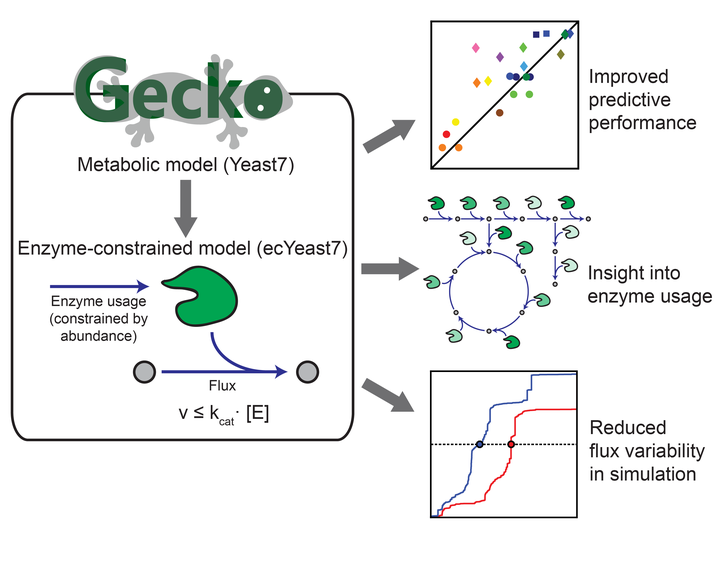Improving the phenotype predictions of a yeast genome-scale metabolic model by incorporating enzymatic constraints
 Overview of the GECKO method and its applications. Taken from the original publication: https://www.doi.org/10.15252/msb.20167411
Overview of the GECKO method and its applications. Taken from the original publication: https://www.doi.org/10.15252/msb.20167411Abstract
A common problem when simulating metabolism with constraint-based modeling is that the user has to define a priori the limitations of consumption, production and/or growth, as otherwise there are no internal constraints in the model that represent a biologically meaningful maximum capacity. This paper introduced GECKO, my flagship project throughout my PhD. GECKO is a computational tool that connects in a straightforward way metabolic fluxes to enzyme levels, imposing intrinsic limitations in metabolism due to the limited intracellular space for enzymes. We tested this approach for S. cerevisiae, creating a so-called ‘enzyme-constrained model’ (ecModel) of yeast, and with it we showed that without including any additional constraints we were able to correctly predict cell phisiology under a number of experimental conditions, provide insight into enzyme usage across metabolism, and significantly reduce the inherent variability of flux predictions.